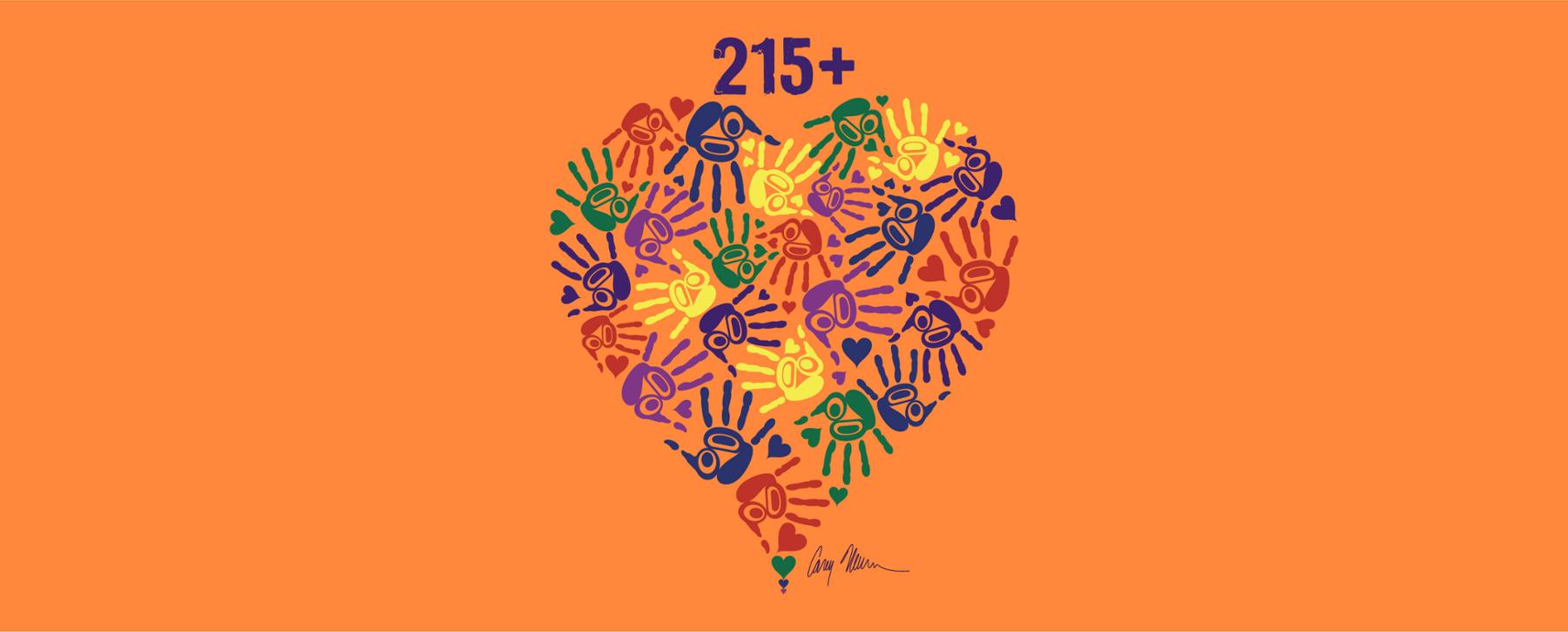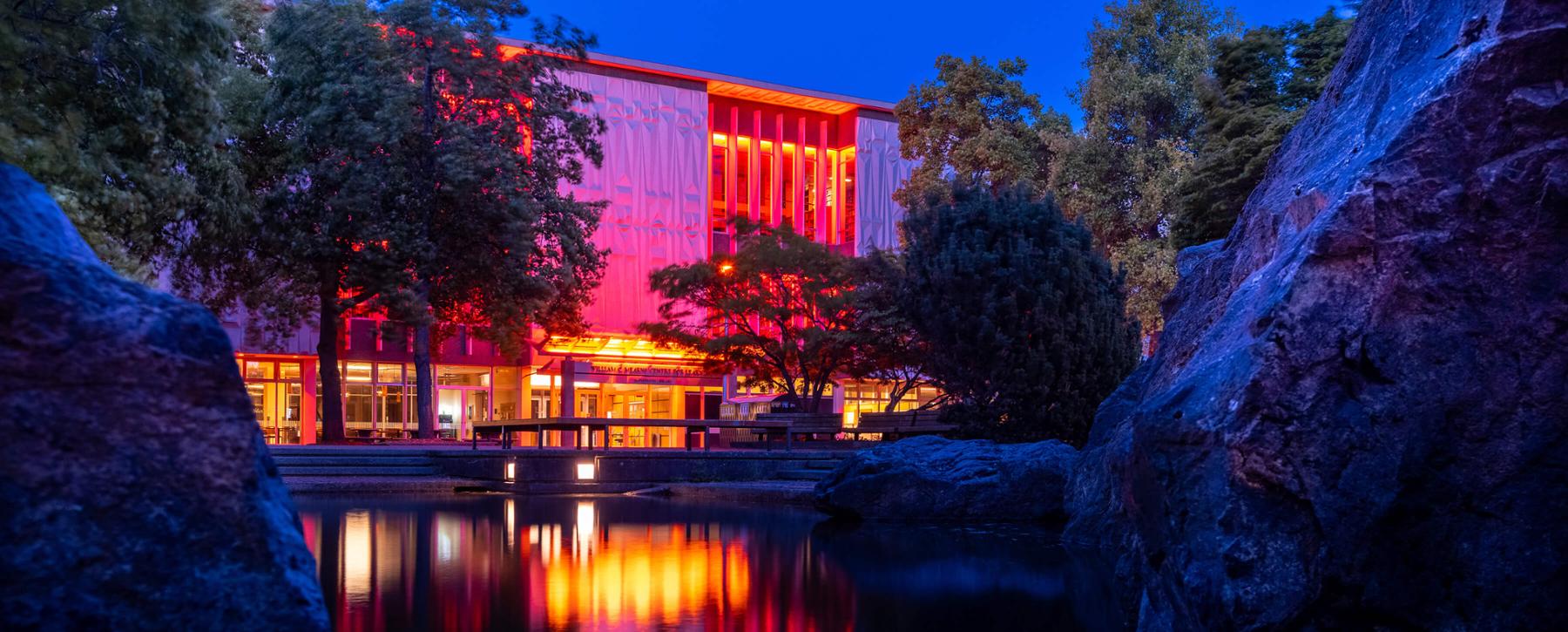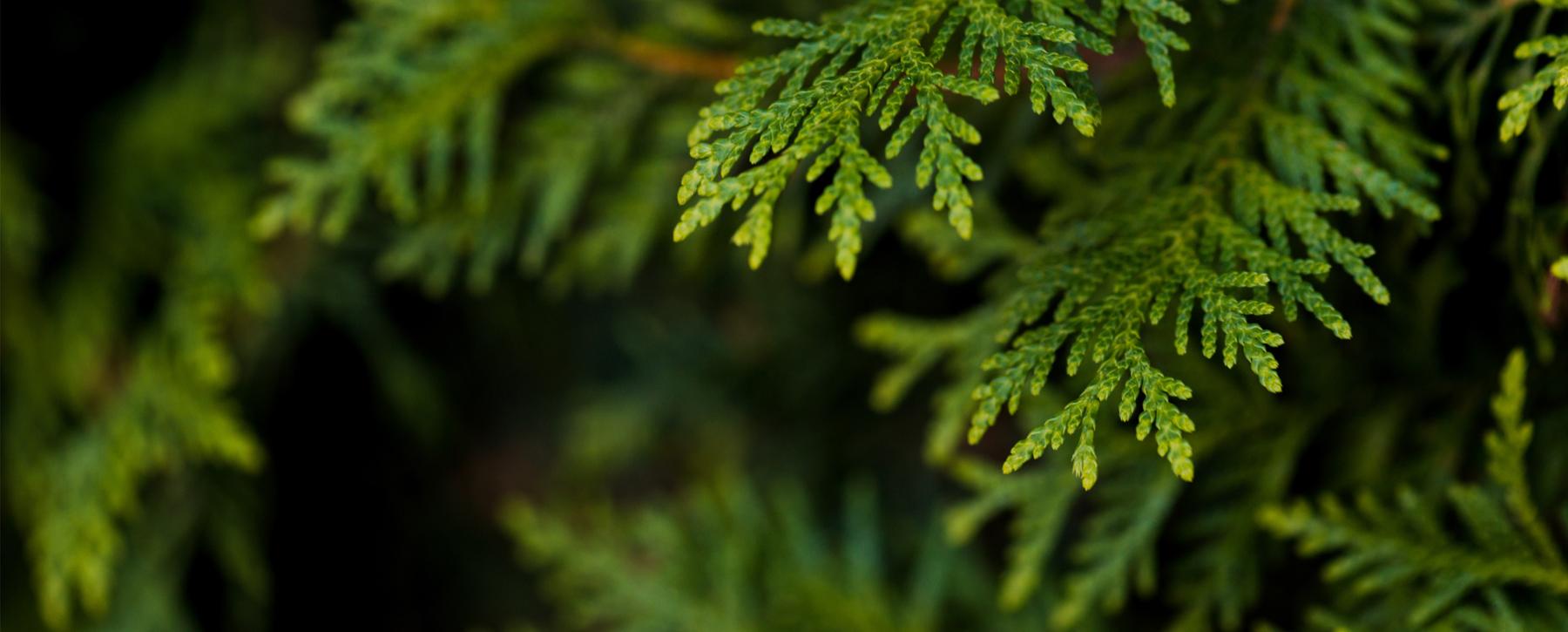215+
This page contains information about residential schools that is potentially upsetting. There are supports available if you need them—please reach out.
On May 28, 2021, people around the world were saddened and angered by the Tk'emlúps te Secwépemc First Nation’s discovery of more than 215 unmarked graves at the Kamloops Residential School site.People across campus and in the community worked together intently to quickly provide a means for people to remember, grieve and reflect. On June 1, 2021, the University of Victoria came together with a four-day Sacred Fire to honour the children who never returned home and to offer support to Elders, community, students, staff and faculty. In August 2021, UVic installed 215 banners created by Indigenous artist, Hayalthkin’geme, Carey Newman, on flag poles around UVic’s main campus and later at the Queenswood, Marine Technology and Ian Stewart Complex sites.
Artist's statement
"This design was made to honour the children who died in residential school. The hearts express love for all those in unmarked graves and compassion for the families and communities who waited for them to be found. The small and colourful hands remind us of the uniqueness and beauty of every child. Taken together, they represent our commitment to listen to our hearts and use our hands, to do the work that needs to be done.
The visceral confirmation of Survivor accounts that has come from locating these graves has affected many of us on an emotional level. It has changed the way that many people think and feel about our histories and current realities in Canada."
Artist Carey Newman (Kwakwaka'wakw/Coast Salish) on "Hearts and Hands"
Survivors' Flag
At the 2024 Orange Shirt Day ceremonies, UVic raised the Survivors’ Flag on campus, unveiling a permanent memorial for the children who lost their lives in residential schools and the survivors who continue to grieve.
In January 2025, the 215+ banners were replaced with new Indigenous artwork banners by internationally renowned Lək̓ʷəŋən master carver and artist Dr. Butch Dick.
"The 215+ banners were never intended to be a long-term visual acknowledgement of truth and reconciliation. They were part of an immediate and collective reaction to a moment in our history. With the raising of the Survivors’ Flag on campus, the work of the banners has concluded and I like to think that they held space until this more permanent response could be found."
— Carey Newman
Sacred Fire
On June 1, 2021, a Sacred Fire ceremony was held on campus to offer support to students, staff, faculty and Elders as we honoured the 215 Indigenous children found by the Tk'emlúps te Secwépemc First Nation at a former residential school in Kamloops, BC.
The Sacred Fire was tended to 24 hours a day until noon Friday, June 4 when it was allowed to extinguish on its own.
Hundreds of people came by to sit by the fire, lay down prayers and medicine and write messages to the 215 children of the Kamloops Indian Residential School. Those messages were burned in the fire as part of the healing.
University flags
On May 28, 2021, the university lowered its flags, in memory of the 215+ children whose remains were located on the grounds of the Kamloops Indian Residential School, and to honour the thousands of children who never returned home.
Following the guidance of local Nations and Elders, and as a sign of our commitment to action and as a reminder of the mourning that will continue until all children are returned home, our flags remained lowered until the end of the year.
Reflecting on one year later
May 27, 2022
On June 1, 2021, the University of Victoria again lowered its flags and came together for a four-day Sacred Fire to honour the children who never returned home and to offer support to Elders, community, students, staff and faculty.
Since this sombre time, over 40 communities have commenced work to search for the graves of children at the sites of former residential schools, including many in British Columbia. Thousands of unmarked graves have been discovered.
As we approach the one-year anniversary of the discovery at the Kamloops Residential School, UVic will once again light a four-day Sacred Fire on June 1, in honour of the children, families, communities and nations affected by this tragedy. Community fire men will tend to the fire over the four days and the campus flags will be lowered for the duration.
In so doing, UVic will be recommitting to the vitally important work of Truth and Reconciliation and the pursuit of fully realized human rights for Indigenous Peoples. The survivors of the residential schools and the children that never returned home must forever remain in our hearts.
With commitment,
President Kevin Hall & Qwul’sih’yah’maht, Dr. Robina Thomas, VP Indigenous



